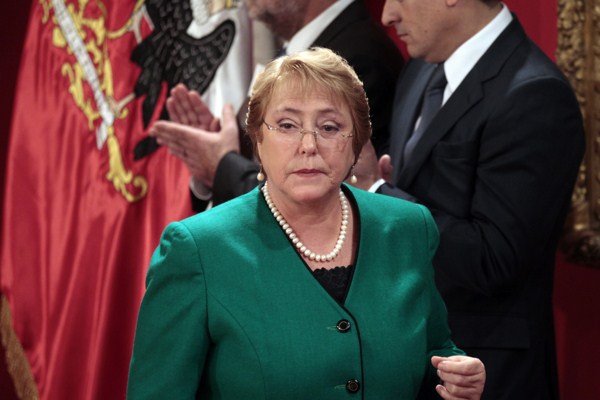Images on television and social media of students rampaging through Santiago and Valparaiso and reports of injuries and even deaths were not what Chilean President Michelle Bachelet anticipated when she began her second, nonconsecutive term in office early last year. Elected in a landslide on a platform to institute social reforms, most of all on education, Bachelet has instead faced increasing political turbulence: The left demands rapid, far-reaching action, and the right is growing anxious about her political course. On May 6, she announced that she had asked her entire Cabinet to resign in order to breathe new life into her political agenda, including a redrafting of the constitution later this year.
It’s quite a turnaround from Bachelet’s first term, concluding in 2010, when she governed as a moderate leftist reformer. As one of Latin America’s cadre of center-left leaders coming to power in the last decade, she was able to maintain fiscal orthodoxy while strengthening Chile’s social agenda. Her four years in office were marked by robust economic growth buoyed by China’s insatiable demand for minerals, including Chile’s top export, copper, as well as significant capital inflows to expand commodities production.
Implementation of a bilateral free trade agreement with the United States was hitting its stride, with benefits being felt throughout the economy. Poverty continued to fall while the middle class continued to grow. Crime was low; Chile routinely scored better than any other Latin American nation on indicators of corruption and competitiveness; and politics were centrist and stable. When she left office five years ago, Bachelet enjoyed a sparkling approval rating over 80 percent, higher than any other previous Chilean president.

